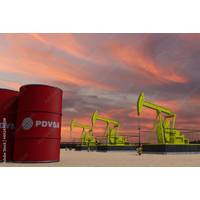Arctic Oil Exploration to Reverse Decline in Norwegian Production
An Offshore Northern Seas (ONS) poll reveals industry professionals see Arctic exploration as viable solution for Norway.
The Industry Snapshot Poll was conducted at ONS by global independent technical advisor, GL Noble Denton. Senior professionals from across the industry also took part in the survey online.
74% of participants said that the development of sizeable reserves in Arctic waters offshore Norway could reverse the country’s diminishing North Sea production rates by 2030. By contrast, only 26% of participants felt Norway would not be able to abate the decline through Arctic exploration.
Lutz Wittenberg, GL Noble Denton’s Executive Vice President for Europe, said: “The remote Arctic region is becoming more attractive to the industry as a whole. This could provide Norway with an opportunity to increase its production at a time when oil output continues to fall sharply but demand for energy is rising.
“The result of the poll suggests there is clear industry support for Arctic exploration in Norwegian waters, and confidence in the country’s ability to develop the infrastructure needed to produce oil in such a challenging environment.
“Current estimates suggest the Barents Sea region could produce somewhere between 400,000 to 500,000 barrels of oil equivalent per day by 2020, further underlining its importance to the country in reversing the decline in production.”
The poll also revealed strong opposition to the European Commission’s (EC) proposals for a single set of offshore safety regulations applicable to all its member countries. 70% of participants said they supported the UK and Norwegian governments’ opposition to the EC’s plans, while only 30% felt the move would be beneficial.
The issue has been a source of controversy since the EC first announced plans for blanket oil and gas safety regulations in October 2011. Both the Norwegian and the UK governments have disputed claims made in an EC impact assessment of the frequency and cost of oil blowouts.


